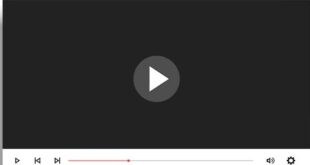
Australia has the highest incidence of skin cancers in the world – with an estimated two out of three Australians having to have at least one cancerous growth cut out in their lifetime.
The country has tried to battle this with public health messaging, encouraging Aussies to apply SPF protection regularly.
However, the results of independent analysis of several of Australia’s most popular – and most expensive – sunscreens has kicked off a national scandal.
A trusted consumer advocacy group, Choice Australia, released a damning report in June.

It tested 20 sunscreens in an independent accredited Australian lab and found 16 did not meet the SPF, or skin protection factor, rating listed on the packaging, the BBC reported.
Australian-made sunscreen brand Ultra Violette was among those found not to have reached advertised ratings.
Ultra Violette’s Lean Screen SPF 50+ Mattifying Zinc Sunscreen was the ‘most significant failure’ identified.
Tests showed it had SPF 4 – not 50. The reading shocked Choice Australia into commissioning a second test, which produced a similar result.
Ultra Violette said it was ‘confident’ that Lean Screen, which retails for upwards of A$50 – or around £24 – was ‘safe and effective’. The company said it had undergone extensive testing.

Products from Neutrogena, Banana Boat, Bondi Sands and the Cancer Council also did not meet their SPF claims, according to Choice Australia.
The companies rejected Choice Australia’s findings and said their own independent testing revealed their sunscreens worked as advertised, BBC News reports.
Metro has approached them all for comment.
In Europe, sunscreen is classed – and regulated – as a cosmetic.
However, Australia sees it as a therapeutic good, like medicine, meaning it is subject to much more robust regulations.
The Therapeutic Goods Association (TGA) said it would investigate the report’s findings and take ‘regulatory action as required’.
While Ultra Violette at first argued Lean Screen met its claims, it later announced the product would be recalled after it returned inconsistent results across eight different sets of lab testing.

A statement on the brand’s Instagram account read: ‘We are deeply sorry that one of our products has fallen short of the standards we pride ourselves on and that you have come to expect of us.’
It added that Ultra Violette was no longer working with the original testing laboratory for Lean Screen.
Other brands have paused sales of at least four more products in the past two weeks. None of these were included in the Choice Australia report.
An investigation by the Australian Broadcasting Corporation found that one US-based laboratory had certified at least half of the products that had failed Choice Australia’s testing. It added this facility regularly recorded high test results.
The investigation also found several of the sunscreens that were recalled shared a similar base formula, linked to a manufacturer in Western Australia.
Customers have said the scandal has made them question the industry as a whole.
In response to Ultra Violette’s statement, one commented: ‘A refund isn’t really going to reverse years of sun damage, is it?’
Another wrote: ‘People have been relying on your sunscreen and trusting it. A simple refund isn’t good enough.’

A spokesperson for Ultra Violette told the BBC it had retested all its other products and confirmed their SPF ratings.
The statement read: ‘We were the first, and currently the only of the 16 products that failed Choice’s test to not just pause sales but withdraw the product all together, prioritising safety, and giving customers access to refunds and a product voucher.’
The spokesperson added that the brand was working with the TGA and others, saying: ‘We are committed to doing our part in driving this category forward.’
The TGA said it was looking into ‘reviewing existing SPF testing requirements’ which can be ‘highly subjective’.
A spokesperson told the BBC: ‘The TGA is also aware that it is common practice for different sunscreen products to share the same or similar base formulations.
‘Ultimately it is the [seller’s] responsibility to ensure that their medicine remains compliant with all applicable legislative requirements.’
Get in touch with our news team by emailing us at webnews@metro.co.uk.
For more stories like this, check our news page.
